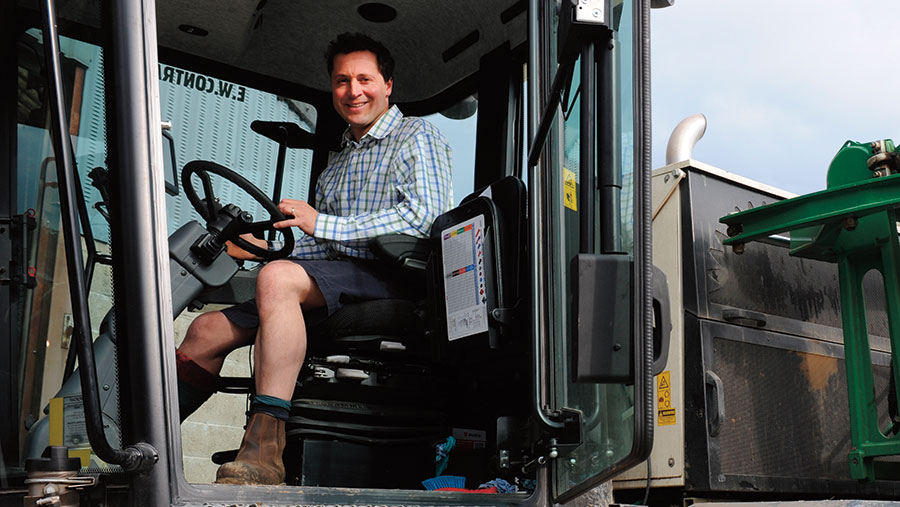Farmer Focus: No sense in neonic cereal seed dressing ban
 © Hugh Nutt
© Hugh Nutt The recent repetitive cycle of unwelcome wet, followed by windy weather has delayed field operations leaving us chasing our tails during the better periods.
Some fertiliser applications which would normally have been split have had to be applied as one dose to keep up with growth stages.
On the plus side, about a third of wheat and oilseed rape crops have had nitrogen fertiliser applications reduced from plans following soil nitrogen test results.
There seems to be more residual nitrogen hanging over from last season than expected. Spring beans and barley are now planted.
See also: Read more from our Arable Farmer Focus writers
At the beginning of March I had the opportunity to meet the blogger David Zaruk, also known as “the risk monger”, and to show him some of our farm.
David has been trying to give farmers a voice in Brussels and help bring balance to agricultural decision-making.
It was inspiring to meet someone with such determination to push facts ahead of fear-mongering in what he describes as the “den of vipers”.
He helped explain how much social media is changing public perceptions and how farmers need to use this technology to tell their own story before others do it for them.
It was pleasing to see recently the European Chemicals Agency state glyphosate as not being a carcinogen.
Hopefully, the EU Commission now have all they need for full relicencing.
Coincidentally, other reports indicate the same body is poised to completely ban all neonicotinoid pesticides later this year which will, among other things, remove Deter (clothianidin) seed dressings.
For those of us in the South West particularly prone to barley yellow dwarf viral infections, this is really bad news.
Since bees have no interest whatsoever in cereal crops, I fail to understand the thinking behind this and we will be forced to use alternative, repetitive spray applications.
We were disappointed to recently fail our TB test with five animals identifying positive, despite none of these animals later showing lesions at autopsy.
This was our worst ever result and is reflective of the local area which seems to be showing increasing infection rates.
I was amused to see reports of the recent police raid of a large cannabis factory found in an old Wiltshire nuclear bomb shelter.
Someone has obviously thought a bit too hard about alternative cropping and diversification.
David Butler farms just south of Marlborough in Wiltshire in partnership with his parents. He also runs a contracting company and farms about 870ha of combinable crops alongside a herd of 280 dairy cows.

